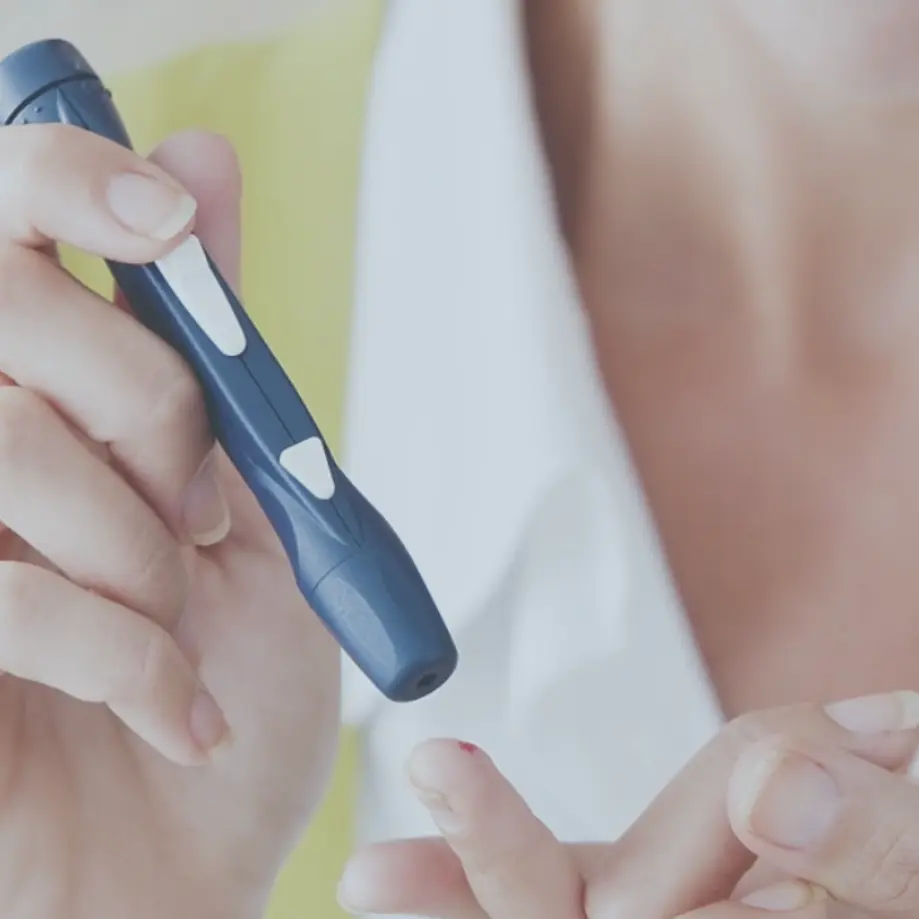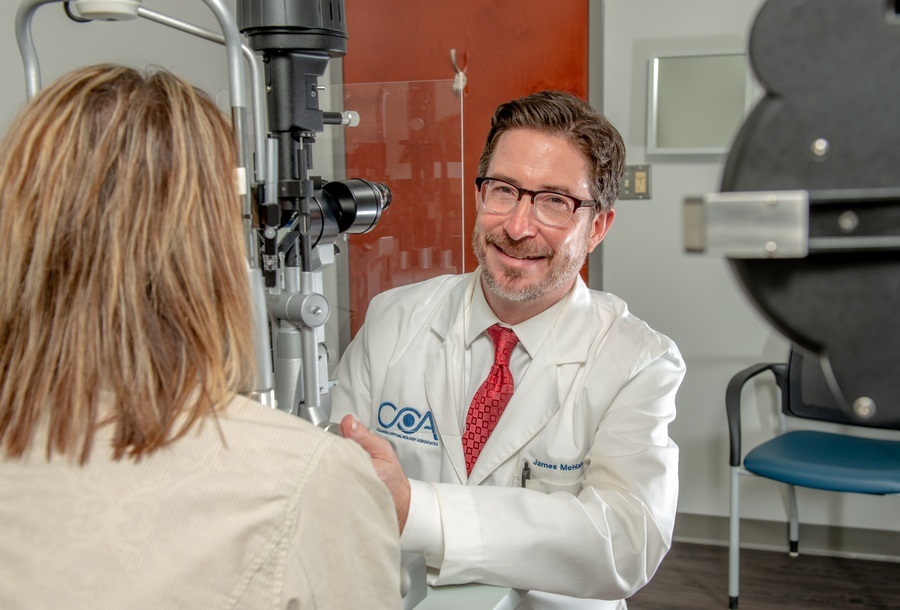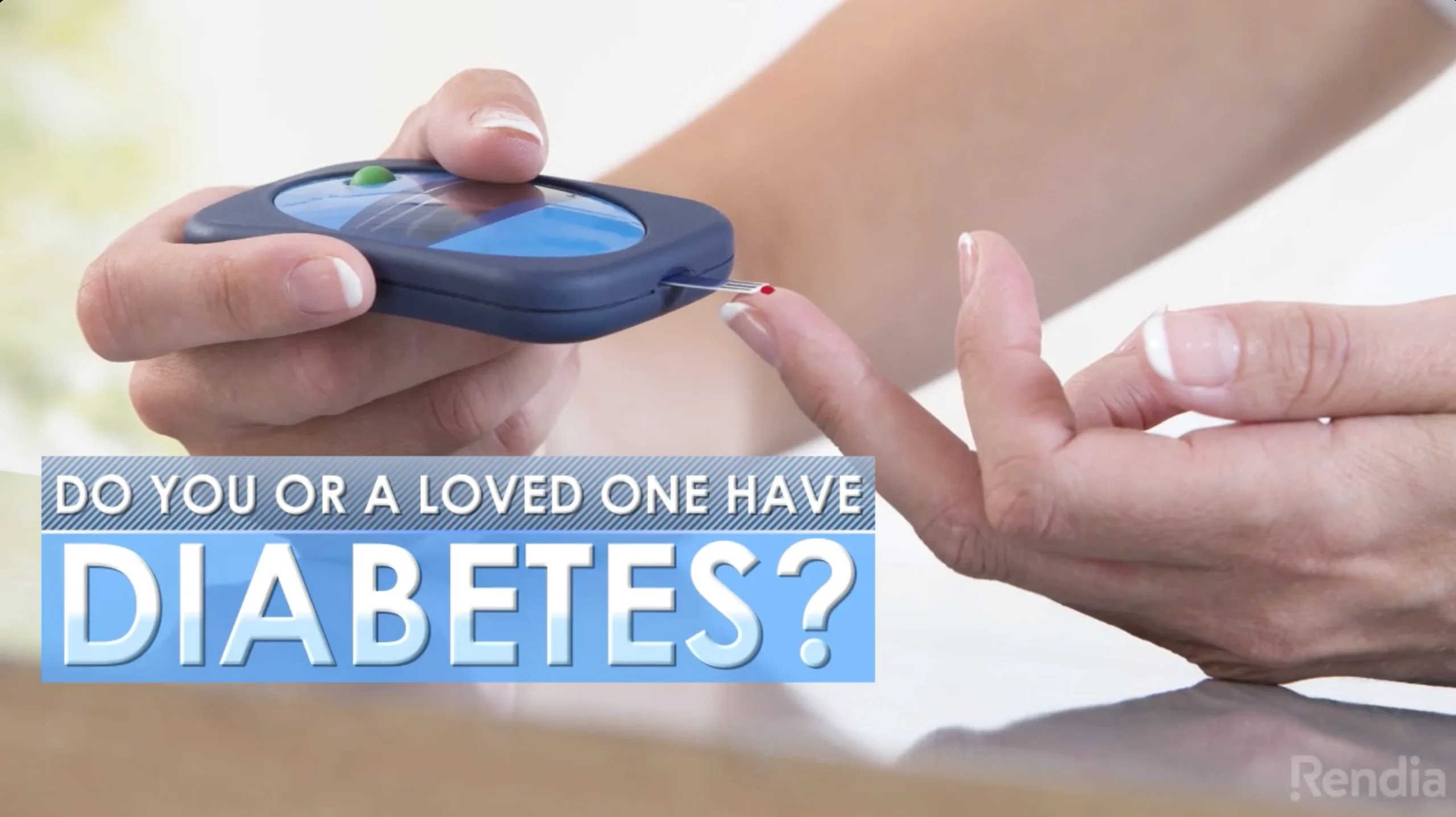
Diabetic Eye Care
The experienced eye doctors at Columbus Ophthalmology Associates are specialists in the diagnosis and management of diabetic eye disease, and our goal is to help our patients with diabetes preserve their vision.
Understanding Diabetic Eye Disease
Diabetic eye disease is not a single condition, but a group of eye issues that may affect people with diabetes. Diabetes is the leading cause of vision loss for American adults, but regular eye exams can help
Trusted Source
Diabetic Eye Problems
Medline Plus
Go to Source
prevent
the vast majority of diabetes vision loss cases.
Eye conditions that are commonly associated with diabetes include:

Diabetic Retinopathy
Diabetic retinopathy is a result of high blood glucose causing damage to the blood vessels in the retina (the lining at the back of the eye where light is focused). In patients with diabetic retinopathy, these blood vessels may leak, swell, or completely close off, causing vision loss.
In its early stages, diabetic retinopathy may not show any symptoms, but may still be diagnosed during a thorough eye exam. As this diabetic eye disease progresses, patients may notice dark spots, floaters, or streaks in their field of vision that are caused by broken blood vessels in the retina bleeding into the vitreous (the gel in the center of the eye). If not treated, diabetic retinopathy can lead to additional eye
Trusted Source
Diabetic Retinopathy
National Eye Institute
Go to Source
conditions
and is the leading cause of vision loss in diabetes patients.
High blood glucose can damage the blood vessels in the retina, causing them to leak, swell, or close off. This may also lead to the growth of abnormal new vessels on the retina’s surface.

Macular Edema
Macular edema can be a complication of diabetic retinopathy, and is a result of damaged blood vessels leaking fluid into the macula, causing swelling. This can lead to blurred vision, central vision that appears wavy, and/or a muted appearance to colors. In patients with diabetes, controlling blood sugar and blood pressure may help reduce swelling caused by macular edema. Our experienced ophthalmologists can also perform additional treatments to reduce the effects of macular edema.
Cataracts
Cataracts are a clouding of the natural lens of the eye, and are a common age-related eye condition. Patients with diabetes are at a higher risk of developing cataracts at an earlier age. Early-stage cataracts may not significantly impede a person’s vision, but all cataracts will eventually need to be surgically treated.
Glaucoma
In individuals with glaucoma, an accumulation of fluid in the front part of the eye puts damaging pressure on the optic nerve. Early stages of glaucoma may not be symptomatic, and patients may not be aware they have this disease until they have already suffered vision loss. While glaucoma cannot be cured, proper and early treatment can alleviate symptoms and help prevent further vision loss.
People with diabetes are at a two-times higher
Trusted Source
Diabetes and Your Eyesight
Glaucoma Research Foundation
Go to Source
risk
of developing glaucoma, so it is especially important for diabetic patients to undergo regular eye exams.
Retinal Detachment
People with diabetes are at a higher risk for retinal detachment, which is a medical emergency caused by the retina pulling away from the rest of the eye. Immediate symptoms of retinal detachment include immediate blurred vision, the appearance of flashing lights, sudden floaters, the appearance of a shadow in the side vision, or a gray curtain over part of the visual field. Retinal
Trusted Source
Detached Retina
American Academy of Ophthalmology
Go to Source
detachment
must be quickly treated by an ophthalmologist in order to preserve vision and prevent further damage to the eye.

How Often Should You Have Your Eyes Examined?
If you have diabetes, it is crucial that you undergo a thorough eye exam at least once every year. According to the U.S. Centers for Disease Control and Prevention (CDC), up to 90% of vision loss linked to diabetes is preventable. Early diagnosis and treatment are key to preserving vision in patients with diabetic eye disease, but only about 50% of diabetes patients undergo annual eye
Trusted Source
Keep an eye on your vision health
U.S. Centers for Disease Control and Prevention
Go to Source
exams.
An annual eye exam with a doctor experienced in diabetic eye care can help you preserve your eye health and protect your vision. If you are at high risk for certain eye conditions linked to your diabetes, your doctor may recommend that you undergo eye exams more frequently. Should you experience sudden changes in vision, floaters, eye pain, double vision, or other abnormalities, please schedule an appointment with your eye doctor immediately.
Visit a Columbus Ophthalmology Associates Location in Ohio
Get the comprehensive, personalized eye care you need in Ohio with Columbus Ophthalmology Associates. Find a location near you and schedule your appointment today.

5155 Bradenton Avenue
Dublin OH, 43017

5965 E Broad St #480
Columbus OH, 43213

4176 Kelnor Drive
Grove City OH, 43123
Schedule an Appointment
Take the first step toward preserving your vision by scheduling a diabetic eye exam appointment. Our dedicated COA team is ready to provide you with the top-notch diabetic eye care that you deserve.
1 Medline Plus. Diabetic Eye Problems. Available: https://eyehealth.diabetes.org. Accessed February 20, 2023.
2 National Eye Institute. Diabetic Retinopathy. Available:https://www.nei.nih.gov/learn-about-eye-health/eye-conditions-and-diseases/diabetic-retinopathy. Accessed March 4, 2021.
3 Glaucoma Research Foundation. Diabetes and Your Eyesight. Available: https://www.glaucoma.org/glaucoma/diabetes-and-your-eyesight.php. Accessed March 4, 2021.
4 American Academy of Ophthalmology. Detached Retina. Available: https://www.aao.org/eye-health/diseases/detached-torn-retina. Accessed March 4, 2021.
5 U.S. Centers for Disease Control and Prevention. Keep an eye on your vision health. Available: https://www.cdc.gov/vision-health/. Accessed March 4, 2021.
The doctors at Columbus Ophthalmology Associates have either authored or reviewed the content on this site.
